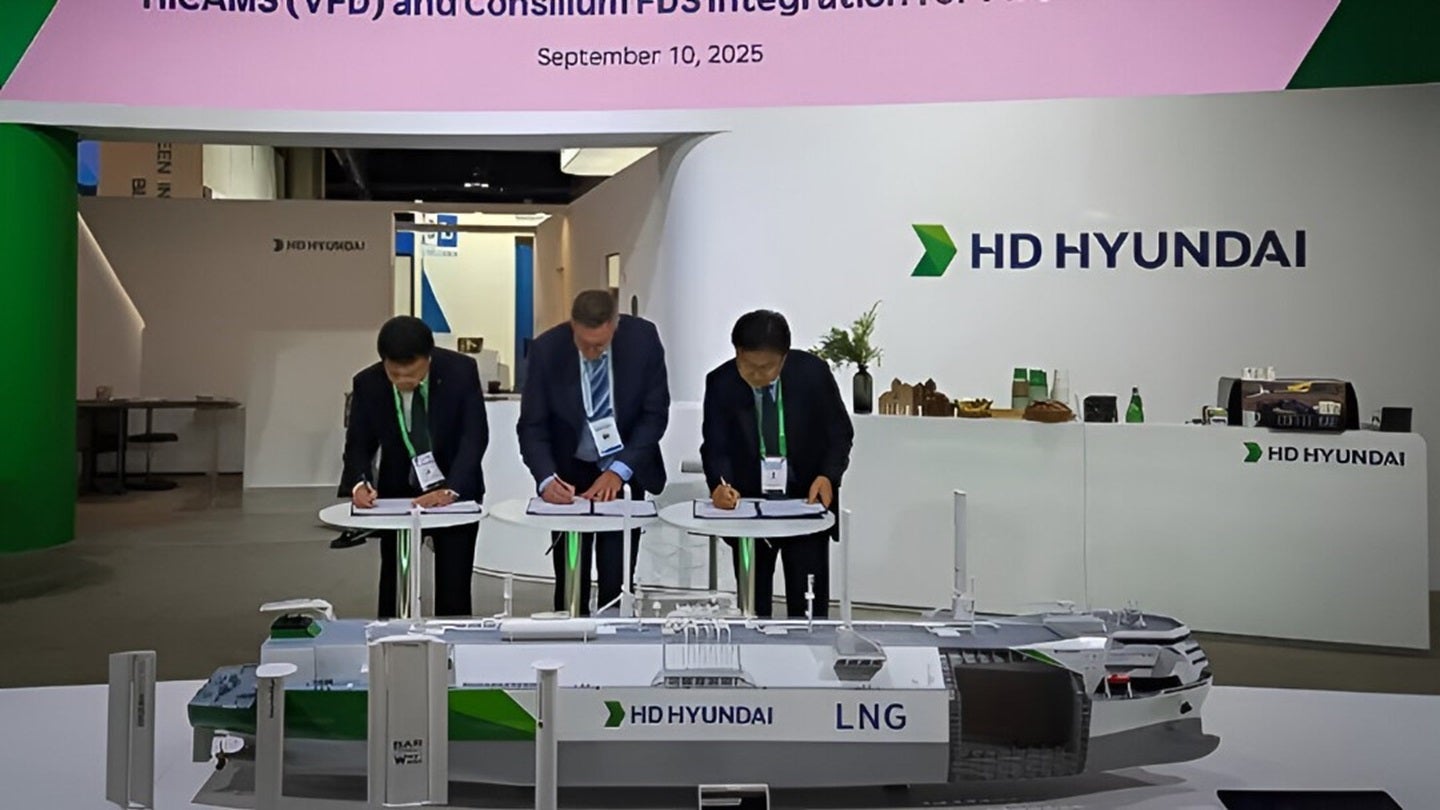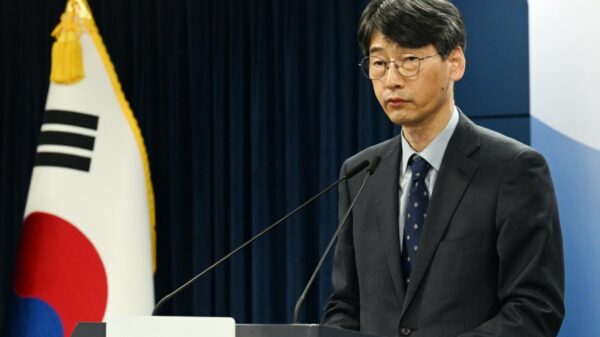In a significant step for maritime safety, Consilium Safety Group has partnered with Hyundai Heavy Industries to explore the application of AI-powered cameras for fire detection on ships. The two companies formalized their collaboration by signing a memorandum of understanding (MoU) during the Gastech exhibition in Milan, Italy.
The agreement outlines a plan to test Hyundai’s HiCAMS technology as part of certified fire alarm systems aboard maritime vessels. Currently, a pilot program is underway on the test vessel Sawasdee Sunrise in South Korea, where HiCAMS is integrated with Consilium’s Safety Management Interface Graphics (SMiG). This integration focuses initially on the detection of smoke and flames, a critical aspect in enhancing maritime safety protocols.
Camera-based fire detection systems are already prevalent in various industries but are only now being considered for the shipping sector. This development marks an important milestone, as it represents the first time such technology is being directly applied within the maritime industry, according to Consilium.
The pilot program specifically targets container vessels. Currently, Consilium’s existing Temperature Monitoring System (TMS) tracks temperature increases in containers stored below deck, while HiCAMS will monitor for smoke above deck among the cargo containers. This dual approach aims to create a comprehensive safety monitoring system.
Thobias Ernfridsson, Chief Technology Officer at Consilium, expressed enthusiasm about the partnership, stating, “There is strong interest in combining proven systems like TMS with new detection methods for areas where additional coverage is needed. Working with Hyundai on HiCAMS, a proven video-based fire detection technology, we aim to demonstrate its potential as a key component of certified fire alarm systems for maritime safety.”
Ernfridsson also pointed out that the applications of this technology could extend well beyond the container shipping segment, hinting at a broader potential impact on the maritime industry overall.
Future Steps and Regulatory Considerations
The next phase of this partnership will involve discussions with a classification society to seek Approval in Principle (AIP). Achieving AIP would confirm the technology’s suitability for integration into certified fire alarm systems, setting the stage for a comprehensive proof-of-concept assessment.
This move not only highlights the advancing role of AI in maritime safety but also positions both Consilium and Hyundai as innovators in a sector that has traditionally relied on more conventional safety measures.
Interestingly, this initiative comes shortly after a similar MoU signed between HD Hyundai Heavy Industries and the Korean Register (KR) to collaborate on the development of a very large ethane carrier (VLEC). This context illustrates a growing trend of technological advancements and partnerships aimed at enhancing operational safety and efficiency within the maritime industry.
As the maritime sector continues to evolve, the integration of AI technologies like HiCAMS could redefine safety standards, making it crucial for stakeholders to keep a close eye on these developments.
See also AI Leaders Discuss Transformative Impact on Workforce at Utah Roundtable
AI Leaders Discuss Transformative Impact on Workforce at Utah Roundtable Oklahoma Appoints Tai Phan as First Chief AI Officer to Drive Government Tech Transformation
Oklahoma Appoints Tai Phan as First Chief AI Officer to Drive Government Tech Transformation Ubisoft Reveals Teammates: AI-Driven NPCs Enhance Gameplay with Real-Time Interaction
Ubisoft Reveals Teammates: AI-Driven NPCs Enhance Gameplay with Real-Time Interaction Bentonville Schools Integrate AI into Career Prep, Engaging 1,000 Students Annually
Bentonville Schools Integrate AI into Career Prep, Engaging 1,000 Students Annually AI Accelerates Drug Development: 90% of Candidates Benefit from Machine Learning Insights
AI Accelerates Drug Development: 90% of Candidates Benefit from Machine Learning Insights





































































